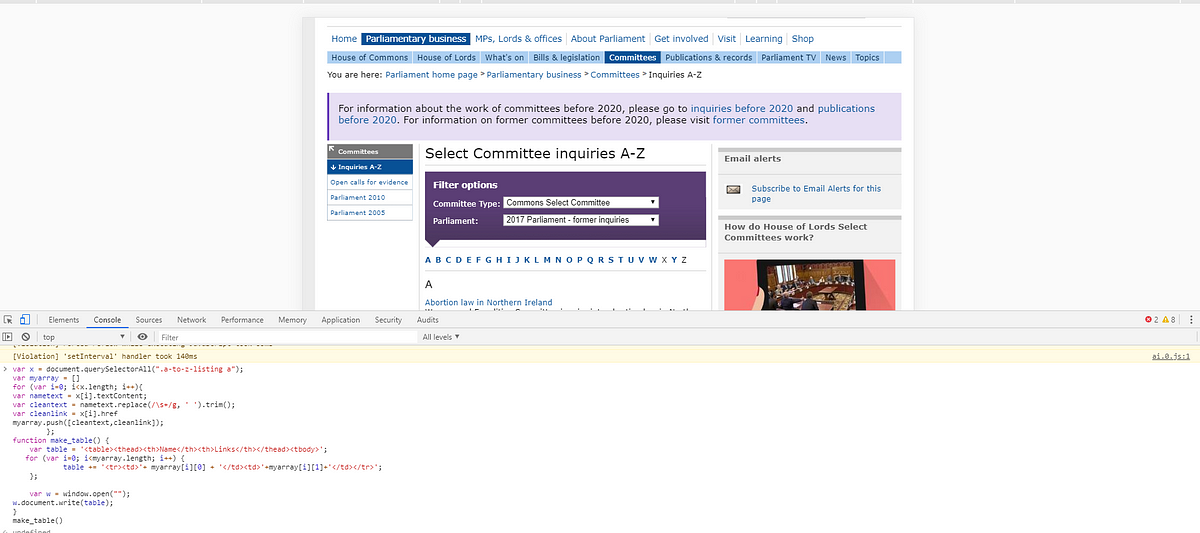How can I automatically generate a sitemap of a website as a text file? A sitemap.txt file that only contains links.
It can be done manually, but maybe a shell or other script could do it? There's nothing in ports for this.
An automatically created XML sitemap could be useful too, but I'm more interested in a txt sitemap to be generated from the FreeBSD command-line. That I temporarily forgot what I had, and that is still available, maybe this isn't so urgent for me anymore.
I copied an adjusted a php file on a website, when I type that web address in, it made a txt sitemap in that directory. I guess a php file could be used from my computer as well. I'm more familiar with Perl scripts from ports doing similar tasks.
It can be done manually, but maybe a shell or other script could do it? There's nothing in ports for this.
An automatically created XML sitemap could be useful too, but I'm more interested in a txt sitemap to be generated from the FreeBSD command-line. That I temporarily forgot what I had, and that is still available, maybe this isn't so urgent for me anymore.
I copied an adjusted a php file on a website, when I type that web address in, it made a txt sitemap in that directory. I guess a php file could be used from my computer as well. I'm more familiar with Perl scripts from ports doing similar tasks.
<?php
set_time_limit(0);
$page_root = '/directory'; //no change this
$website = "https://mywebsite.net"; //your website address, change this
$textfile="sitemap.txt"; //your sitemap text file name, no need change
// list of file filters
$filefilters[]=".php";
$filefilters[]=".shtml";
// list of disallowed directories
$disallow_dir[] = "unused";
// list of disallowed file types
$disallow_file[] = ".bat";
$disallow_file[] = ".asp";
$disallow_file[] = ".old";
$disallow_file[] = ".save";
$disallow_file[] = ".txt";
$disallow_file[] = ".js";
$disallow_file[] = "~";
$disallow_file[] = ".LCK";
$disallow_file[] = ".zip";
$disallow_file[] = ".ZIP";
$disallow_file[] = ".CSV";
$disallow_file[] = ".csv";
$disallow_file[] = ".css";
$disallow_file[] = ".class";
$disallow_file[] = ".jar";
$disallow_file[] = ".mno";
$disallow_file[] = ".bak";
$disallow_file[] = ".lck";
$disallow_file[] = ".BAK";
$disallow_file[] = ".bk";
$disallow_file[] = "mksitemap";
// simple compare function: equals
function ar_contains($key, $array) {
foreach ($array as $val) {
if ($key == $val) {
return true;
}
}
return false;
}
// better compare function: contains
function fl_contains($key, $array) {
foreach ($array as $val) {
// echo $key.'-------'.$val.'<br>';
$pos = strpos($key, $val);
if ($pos == FALSE) continue;
return true;
}
return false;
}
// this function changes a substring($old_offset) of each array element to $offset
function changeOffset($array, $old_offset, $offset) {
$res = array();
foreach ($array as $val) {
$res[] = str_replace($old_offset, $offset, $val);
}
return $res;
}
// this walks recursivly through all directories starting at page_root and
// adds all files that fits the filter criterias
// taken from Lasse Dalegaard, http://php.net/opendir
function getFiles($directory, $directory_orig = "", $directory_offset="") {
global $disallow_dir, $disallow_file, $allow_dir,$filefilters,$timebegin;
if ($directory_orig == "") $directory_orig = $directory;
if($dir = opendir($directory)) {
// Create an array for all files found
$tmp = Array();
// Add the files
while($file = readdir($dir)) {
// Make sure the file exists
if($file != "." && $file != ".." && $file[0] != '.' ) {
// If it's a directiry, list all files within it
if(is_dir($directory . "/" . $file)) {
$disallowed_abs = fl_contains($directory."/".$file, $disallow_dir); // handle directories with pathes
$disallowed = ar_contains($file, $disallow_dir); // handle directories only without pathes
$allowed_abs = fl_contains($directory."/".$file, $allow_dir);
$allowed = ar_contains($file, $allow_dir);
if ($disallowed || $disallowed_abs) continue;
//if ($allowed_abs || $allowed)
{
$tmp2 = changeOffset(getFiles($directory . "/" . $file, $directory_orig, $directory_offset), $directory_orig, $directory_offset);
if(is_array($tmp2)) {
$tmp = array_merge($tmp, $tmp2);
}
}
} else { // files
if (fl_contains($file, $filefilters)==false) continue;
if (fl_contains($file, $disallow_file)) continue;
array_push($tmp, str_replace($directory_orig, $directory_offset, $directory."/".$file));
}
}
}
// Finish off the function
closedir($dir);
return $tmp;
}
}
function WriteTextFile($filename,$somecontent)
{
if (is_writable($filename)) {
// In our example we're opening $filename in append mode.
// The file pointer is at the bottom of the file hence
// that's where $somecontent will go when we fwrite() it.
if (!$handle = fopen($filename, 'w')) {
echo "Cannot open file ($filename)<br>";
return false;
}
// Write $somecontent to our opened file.
if (fwrite($handle, $somecontent) === FALSE) {
echo "Cannot write to file ($filename)<br>";
return false;
}
//echo "Success, wrote ($somecontent) to file ($filename)";
fclose($handle);
} else {
echo "The file $filename is not writable<br>";
}
return true;
}
function replacespecailstr($srcstr)
{
$srcstr=str_replace('&','&',$srcstr);
return $srcstr;
}
echo 'Getting File List...<br>';
$a = getFiles($page_root);
echo 'Creating Text Sitemap...<br>';
$text='';
$texthandle = fopen($textfile, 'w');
$count=0;
foreach ($a as $file) {
$text=str_replace("%2F","/",$website.rawurlencode(str_replace(".php", "", $file)));
if(!fwrite($texthandle,$text."\r\n"))
{
echo 'can not write '.$text.' <br>';
break;
}
$count++;
}
fclose($texthandle);
echo 'create ok, count='.$count.'<br>';
?>
set_time_limit(0);
$page_root = '/directory'; //no change this
$website = "https://mywebsite.net"; //your website address, change this
$textfile="sitemap.txt"; //your sitemap text file name, no need change
// list of file filters
$filefilters[]=".php";
$filefilters[]=".shtml";
// list of disallowed directories
$disallow_dir[] = "unused";
// list of disallowed file types
$disallow_file[] = ".bat";
$disallow_file[] = ".asp";
$disallow_file[] = ".old";
$disallow_file[] = ".save";
$disallow_file[] = ".txt";
$disallow_file[] = ".js";
$disallow_file[] = "~";
$disallow_file[] = ".LCK";
$disallow_file[] = ".zip";
$disallow_file[] = ".ZIP";
$disallow_file[] = ".CSV";
$disallow_file[] = ".csv";
$disallow_file[] = ".css";
$disallow_file[] = ".class";
$disallow_file[] = ".jar";
$disallow_file[] = ".mno";
$disallow_file[] = ".bak";
$disallow_file[] = ".lck";
$disallow_file[] = ".BAK";
$disallow_file[] = ".bk";
$disallow_file[] = "mksitemap";
// simple compare function: equals
function ar_contains($key, $array) {
foreach ($array as $val) {
if ($key == $val) {
return true;
}
}
return false;
}
// better compare function: contains
function fl_contains($key, $array) {
foreach ($array as $val) {
// echo $key.'-------'.$val.'<br>';
$pos = strpos($key, $val);
if ($pos == FALSE) continue;
return true;
}
return false;
}
// this function changes a substring($old_offset) of each array element to $offset
function changeOffset($array, $old_offset, $offset) {
$res = array();
foreach ($array as $val) {
$res[] = str_replace($old_offset, $offset, $val);
}
return $res;
}
// this walks recursivly through all directories starting at page_root and
// adds all files that fits the filter criterias
// taken from Lasse Dalegaard, http://php.net/opendir
function getFiles($directory, $directory_orig = "", $directory_offset="") {
global $disallow_dir, $disallow_file, $allow_dir,$filefilters,$timebegin;
if ($directory_orig == "") $directory_orig = $directory;
if($dir = opendir($directory)) {
// Create an array for all files found
$tmp = Array();
// Add the files
while($file = readdir($dir)) {
// Make sure the file exists
if($file != "." && $file != ".." && $file[0] != '.' ) {
// If it's a directiry, list all files within it
if(is_dir($directory . "/" . $file)) {
$disallowed_abs = fl_contains($directory."/".$file, $disallow_dir); // handle directories with pathes
$disallowed = ar_contains($file, $disallow_dir); // handle directories only without pathes
$allowed_abs = fl_contains($directory."/".$file, $allow_dir);
$allowed = ar_contains($file, $allow_dir);
if ($disallowed || $disallowed_abs) continue;
//if ($allowed_abs || $allowed)
{
$tmp2 = changeOffset(getFiles($directory . "/" . $file, $directory_orig, $directory_offset), $directory_orig, $directory_offset);
if(is_array($tmp2)) {
$tmp = array_merge($tmp, $tmp2);
}
}
} else { // files
if (fl_contains($file, $filefilters)==false) continue;
if (fl_contains($file, $disallow_file)) continue;
array_push($tmp, str_replace($directory_orig, $directory_offset, $directory."/".$file));
}
}
}
// Finish off the function
closedir($dir);
return $tmp;
}
}
function WriteTextFile($filename,$somecontent)
{
if (is_writable($filename)) {
// In our example we're opening $filename in append mode.
// The file pointer is at the bottom of the file hence
// that's where $somecontent will go when we fwrite() it.
if (!$handle = fopen($filename, 'w')) {
echo "Cannot open file ($filename)<br>";
return false;
}
// Write $somecontent to our opened file.
if (fwrite($handle, $somecontent) === FALSE) {
echo "Cannot write to file ($filename)<br>";
return false;
}
//echo "Success, wrote ($somecontent) to file ($filename)";
fclose($handle);
} else {
echo "The file $filename is not writable<br>";
}
return true;
}
function replacespecailstr($srcstr)
{
$srcstr=str_replace('&','&',$srcstr);
return $srcstr;
}
echo 'Getting File List...<br>';
$a = getFiles($page_root);
echo 'Creating Text Sitemap...<br>';
$text='';
$texthandle = fopen($textfile, 'w');
$count=0;
foreach ($a as $file) {
$text=str_replace("%2F","/",$website.rawurlencode(str_replace(".php", "", $file)));
if(!fwrite($texthandle,$text."\r\n"))
{
echo 'can not write '.$text.' <br>';
break;
}
$count++;
}
fclose($texthandle);
echo 'create ok, count='.$count.'<br>';
?>



